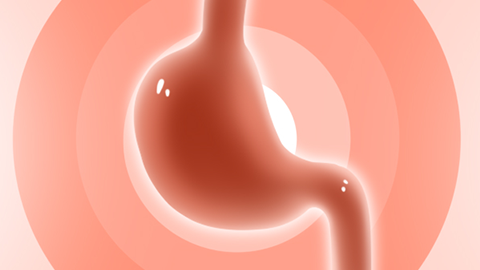Why is it that nothing I eat is absorbed?
Generally, the inability to absorb nutrients from food may be caused by age-related factors, poor dietary habits, indigestion, chronic gastritis, cholecystitis, and other related conditions. If discomfort occurs, timely medical consultation is recommended, and corresponding treatments should be carried out under a doctor's guidance. Detailed explanations are as follows:

1. Age-related factors
With aging, gastrointestinal motility slows down and secretion of digestive enzymes decreases, which can affect food digestion and nutrient absorption. Additionally, tooth wear and reduced chewing ability can impair the initial digestion of food. It is recommended to adjust the diet structure and choose easily digestible foods such as soft or semi-liquid foods to aid gastrointestinal absorption.
2. Poor dietary habits
Overeating and irregular eating patterns may increase the burden on the gastrointestinal tract and affect digestion and nutrient absorption. Food types and preparation methods can also influence absorption rates; for example, excessive cooking time may reduce vitamin C content and absorption in vegetables. It is recommended to improve dietary habits by chewing food thoroughly, eating smaller meals more frequently, and avoiding overeating or consuming overly greasy and spicy foods.
3. Indigestion
Indigestion may be caused by overeating or frequently consuming greasy foods, leading to insufficient digestion and breakdown of food in the gastrointestinal tract. This results in poor nutrient absorption and is often accompanied by symptoms such as bloating, stomach pain, and acid reflux. It is recommended to take medications such as Jianwei Xiaoshi tablets (digestive tablets), compound pepsin granules, or domperidone tablets as directed by a physician to alleviate symptoms of indigestion.
4. Chronic gastritis
Chronic gastritis is usually caused by dietary factors or poor eating habits, which may damage the gastric mucosa and reduce the secretion of gastric acid and pepsin, affecting food digestion in the stomach and subsequent nutrient absorption. Symptoms may include stomach pain, acid regurgitation, and heartburn. It is recommended to take medications such as omeprazole enteric-coated capsules, mosapride tablets, or sucralfate dispersible tablets under medical supervision.
5. Cholecystitis
Cholecystitis is primarily caused by obstruction of the cystic duct or bacterial infection, which may lead to insufficient or irregular bile secretion, resulting in poor fat digestion and impaired nutrient absorption. Symptoms may include right upper abdominal pain, nausea, and vomiting. It is recommended to use medications such as anti-inflammatory and bile-promoting tablets, clindamycin hydrochloride tablets, or ursodeoxycholic acid tablets under a doctor's guidance for treatment.
It is recommended to choose nutrient-rich and easily digestible foods in daily life, such as yam, pumpkin, and fish, and to eat smaller meals more frequently, which helps reduce the burden on the gastrointestinal tract.




